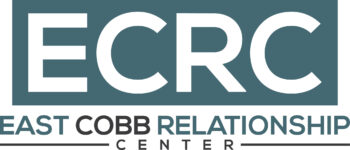Emotionally Focused Therapy (EFT) is a popular and effective form of psychotherapy used to help couples and individuals build secure, lasting relationships. It is based on the idea that strong relationships require emotional bonding and that when a relationship is suffering, it is often due to a lack of secure emotional connection. Couples can find themselves miscommunicating, upset about unmet expectations, and becoming distant. While every relationship encounters its fair share of challenges, it’s how couples address these challenges that can continue to fracture or strengthen a relationship.
Emotions are the key to healthy relationships. By exploring and understanding the emotions behind the conflicts, couples can better understand each other and learn how to build a stronger, more secure bond. EFT helps couples identify the underlying issues that lead to conflict and encourages them to express their feelings openly and honestly.
What Is EFT
EFT was developed in the 1980s by Dr. Sue Johnson and Dr. Les Greenberg. The cornerstone of EFT is “attachment theory,” which looks at how we form relationships with others. It suggests that for a relationship to be successful, both partners must experience a secure connection. Couples achieve a secure connection by learning to notice and tolerate emotion within themselves and then learning to express that emotion gently and in a non-threatening way. In addition to expressing emotions, spouses learn how to handle and respond to their partner’s emotions in a way that helps the partner feel understood, validated, and safe.
Communicating openly and honestly about feelings is essential to building a secure bond and creating a meaningful and mutually respectful relationship. Quality relationships depend on the strength of your emotional connection. Eventually, EFT helps partners learn to respond to each other’s needs constructively and lovingly.
The Three Phases of Emotionally Focused Therapy
An entire course of Emotionally Focused Therapy consists of three phases. In reality, there is some overlap between these phases. Still, the idea of the three phases is conceptually helpful. The first phase of therapy involves:
- Identifying the negative cycle and identifying.
- Tolerating and sharing primary emotions.
- Learning to Respond well to your partner’s primary emotions.
Primary emotions are the basic emotions we experience in response to various triggers. These emotions are universal, meaning they are experienced in the same way by everyone, regardless of culture or language. Common primary emotions include happiness, sadness, anger, fear, disgust, and surprise. Understanding the primary emotions can help us better understand ourselves and our relationships.
When a couple is good at identifying their negative cycle and can tolerate sharing primary emotions, they are ready for the next phase of couples therapy. In phase two, we work to identify the wound or raw spot associated with the primary emotion. This wound is found in painful experiences early in life for many individuals. We work together to identify the injury and find a corresponding unmet need they can bring to their partner. Ultimately, learning to ask for our needs to be met signifies a secure relationship.
The third phase of Emotionally Focused Therapy examines areas of a couple’s relationship in which they still get stuck in their negative cycle. An example of this would be a couple who can communicate effectively and securely in most areas of their relationship but still have difficulty discussing sex, sexual rejection, or money.

Common Misconceptions About EFT
Despite its proven effectiveness, EFT is sometimes misunderstood or mischaracterized. A common misconception is that EFT is only for couples with severe relationship problems. However, EFT is beneficial for couples at all stages of their relationship. Whether a couple seeks to enhance their connection or address specific challenges, EFT provides valuable tools and insights for fostering emotional intimacy.
Another misconception is that EFT focuses solely on emotions, and doesn’t work on helping couples with problem-solving skills. While emotions are central to EFT, the therapy also equips couples with essential communication and conflict resolution skills. Some individuals believe EFT is a quick fix for relationship issues. While EFT is a relatively short-term therapy, lasting change requires commitment and effort from both partners. Couples must actively engage in the therapeutic process and integrate the insights gained into their daily lives.
Preparing For Your First EFT Session
Preparing for your first EFT session can help ensure a positive and productive experience. Here are some things to consider:
- Reflect on your goals for therapy and what you hope to achieve. Discuss these goals with your partner so you’re on the same page.
- Be open and honest with your therapist about your relationship dynamics and any concerns you may have. Transparency is key to get the full benefits of EFT.
- Approach therapy with an open mind and a willingness to explore your emotions and vulnerabilities. Be prepared to engage actively in the therapeutic process and commit to making positive changes in your relationship.
What to Expect During Your First Few Couple’s Therapy Sessions
During the first session of couples therapy with Emotionally Focused Therapy, your therapist will meet with both of you together. The first session’s focus is primarily on gathering the history of your relationship and beginning to understand the pattern that exists when the two of you are out of sorts with each other. The subsequent two sessions are individual. In the individual sessions, your therapist will ask questions to understand your experiences in close relationships.
After the first three sessions, your and your partner will be together in all subsequent sessions. During Emotionally Focused therapy, the client is your relationship. Your therapist will work with you to help you learn the skills to make your relationship the best it can be. Contact us to learn more or schedule an appointment.
